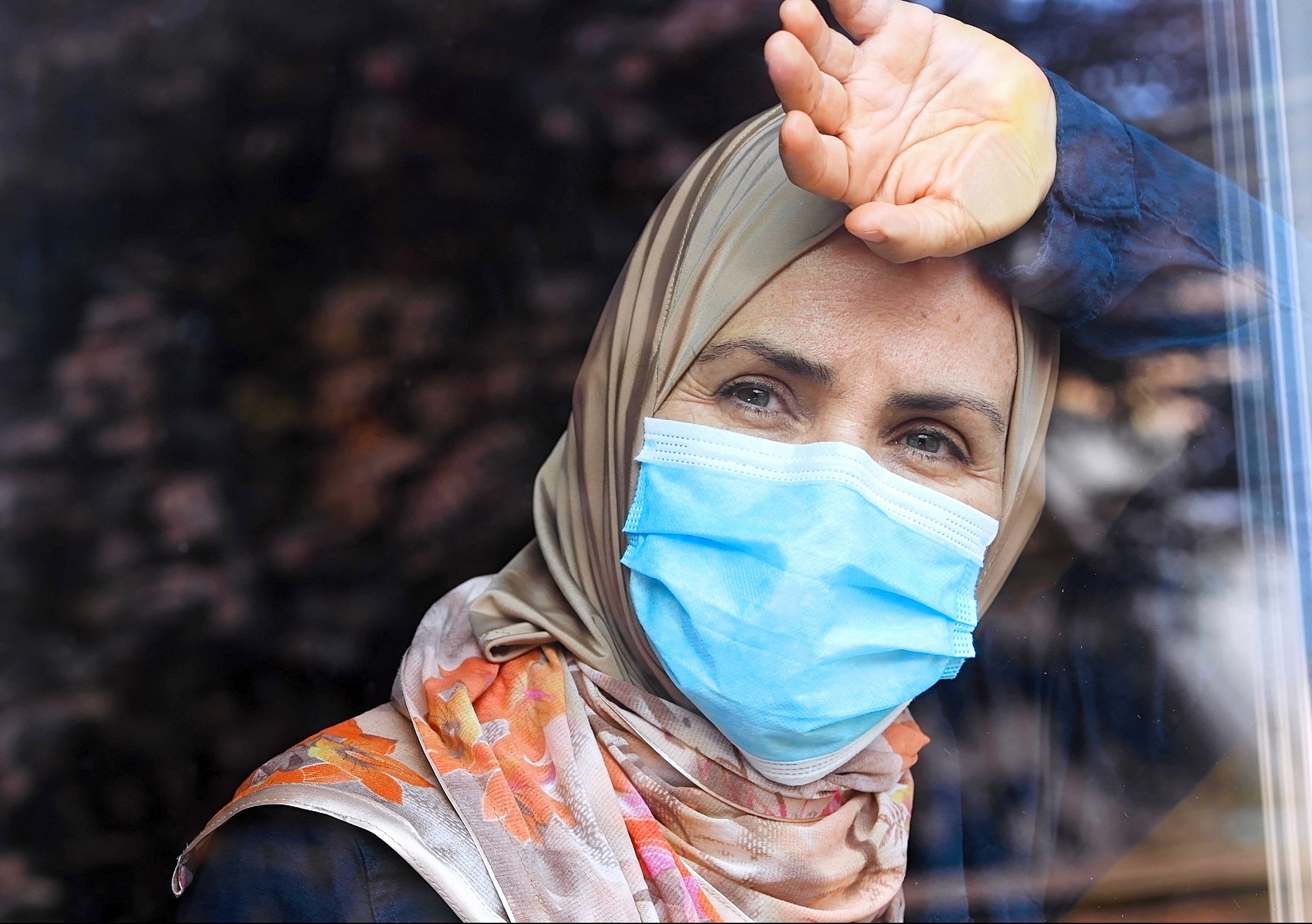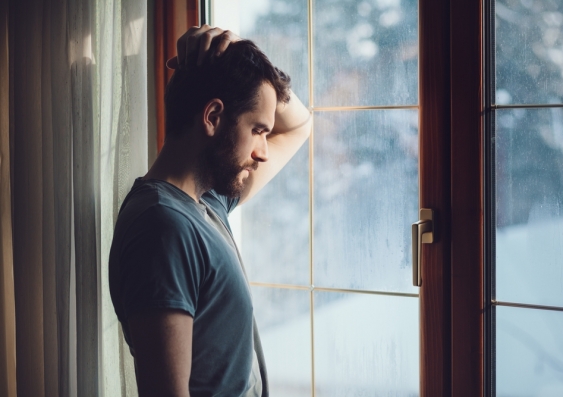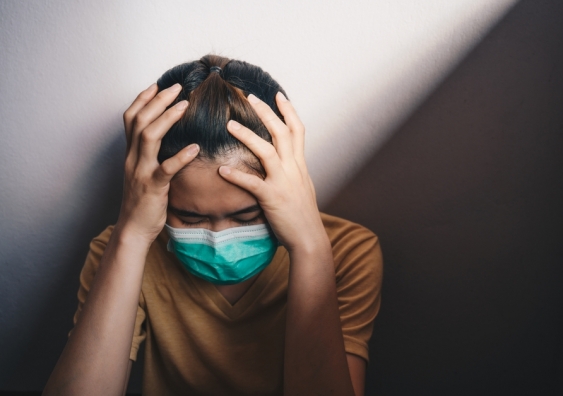Refugee mental health: temporary visas don't improve depression
2023-07-17T14:53:00+10:00

Photo: Getty Images
A survey of more than 1000 refugees has shown only permanent protection visas are linked to mental health and social benefits.
şÚÁĎÍř´óĘÂĽÇ psychologists have compared the long-term psychological and social consequences of changing visa status, showing that any form of temporary visa is associated with worse mental health in refugees compared to permanent secure visas.
The findings, published in the , have important policy implications, including the value of providing permanent protection to as many refugees as possible.
Along with study partners at Australian Red Cross and SSI, and Phoenix Australia, University of Melbourne, the şÚÁĎÍř´óĘÂĽÇ team investigated how refugees’ mental health developed after a change from low security visas (e.g. bridging visa) to medium security visas (e.g. temporary protection visa) or high security visas (permanent residency).
The şÚÁĎÍř´óĘÂĽÇ researchers  that permanent visas are better for refugees’ mental health – but up until this study, they didn’t know whether the medium security afforded by temporary protection visas had any benefits over low security visas.
“The findings of our world-first study have confirmed that permanent visas for refugees are associated with improved depression symptoms and social adaptation, like feeling less isolation and loneliness – but crucially, this was not the case for temporary protection visas,” says lead author, şÚÁĎÍř´óĘÂĽÇ Professor Angela Nickerson.
“Our results suggest that remaining in a state of prolonged insecurity may be associated with poorer long-term mental health outcomes. This highlights the critical importance of safety and security in the resettlement environment to facilitate good adaptation amongst refugees.”
Refugees around the world live in various states of insecurity, ranging from low levels to high levels of security.
“Because the number of permanent settlement places globally are so limited, many refugees around the world live in a state of low security without permanent settlement, with reduced rights and restricted access to employment, financial support, education or health care,” says şÚÁĎÍř´óĘÂĽÇ co-author, Associate Professor Belinda Liddell.
“At the time this study was conducted, temporary protection visas offered a medium level of security in Australia: visa holders were recognised as refugees and could typically access basic health, financial, education and social services, but were required to periodically re-apply for protection and could not access family reunification pathways.
“But we didn’t know whether the medium level of security afforded by temporary protection visas translated into better mental health outcomes for refugees compared to low security visas.”
Survey shows effect of level of security
The researchers surveyed 1021 Arabic, Farsi, Tamil or English-speaking refugees or asylum seekers living in Australia who had taken part in a longitudinal study investigating refugee mental health over eight time points from 2015 to 2020.
They analysed if a change in visa status was associated with changes in depression, social adaptation – measured through feelings of isolation, loneliness and boredom – and immigration-related fears, such as the fear of being deported.
“If temporary visas are indeed giving refugees a sense of security, as is often claimed, we would expect that moving from low to medium visa security would be associated with significant improvements in these measures,” A/Prof. Liddell says.
“However, we found there was no change in depression symptoms between those who transitioned to medium visa security and those who maintained low visa security.”
The researchers also found that there was no significant difference in social difficulties between those who changed to a medium visa security and those who remained in the low security group.
A/Prof. Liddell says the researchers were somewhat surprised by these findings.Â
“But they also make sense, because ultimately, a medium security visa is still only a temporary status – up until recently, in Australia, people had confirm their refugee status regularly through visa reapplication,” she says.
“And crucially, temporary visa holders still face the possibility of deportation, a possibility of having to return to a country of origin where there are fears for safety, and prolonged family separation. It's very difficult and distressing for people, and not a durable solution for anyone.”
A/Prof. Liddell says living without basic security affects the core understanding of who you are as a person and how you see yourself.
“Temporary status and depression are remarkably similar – with both, you don't see a future for yourself. You have this sense of hopelessness and feeling stuck. It's kind of a limbo, you can't go forward and can't go back. Our research shows that even medium levels of security visas carry those implications.”
Call for more permanent protection visas
With unprecedented levels of forced displacement globally, many countries are exploring options for best supporting the need to provide safety to refugees.
“This study demonstrates that the positive effects afforded by permanent protection following displacement may not extend to temporary protection,” Prof. Nickerson says.
“Conversely, there are comparatively negative effects associated with temporary protection.
“In light of our findings, governments could consider restricting temporary protection to brief crisis periods, as provision of permanent protection is likely to lead to better psychological and social outcomes for refugees.”
In February 2023, the Australian government announced that refugees in Australia on Temporary Protection Visas (TPVs) or Safe Haven Enterprise Visas (SHEVs) are eligible to apply for a permanent Resolution of Status visa.Â
“This action moves towards providing refugees with greater certainty and control over their future. Since these policy changes occurred after the data was collected for this study, it will be important that future research seek to understand the impact of these new policies on refugee mental health and wellbeing,” A/Prof. Liddell says.
Yamamah Agha, General Manager, Newcomers Settlement and Integration, SSI, says SSI’s experience of providing programs that support people on permanent and temporary protection visas corroborates these study findings.
“Permanency and security create the foundations for refugees’ integration and improved health and wellbeing,” she says.
“Through SSI’s work with people on permanent and temporary protection visas we see flow-on effects where improvements in refugees’ mental health leads to other positive benefits in areas including employment, further education and improved family relationships.”
Vicki Mau, Director of Australian Programs at Australian Red Cross, says the study also shows the importance of family.
“This study also shows that family provide strong protective factors for people,” Ms Mau says.
“We know that family separation has a significant direct impact on psychological wellbeing. Secure visas are often associated with the ability to sponsor family members to come to Australia, an important factor which can also contribute to wellbeing and support the resettlement process.”
Media enquiries
Isabelle Dubach, Senior News & Content Manager
Tel: 0432 307 244
Email:
Related stories
-

Women from refugee backgrounds at higher risk of mental distress due to COVID-19: study
-

Refugees without secure visas have poorer mental health – but the news isn't all bad
-

Refugees especially vulnerable to mental health toll of COVID-19
-

Online program helps traumatised refugees overcome mental health stigma



